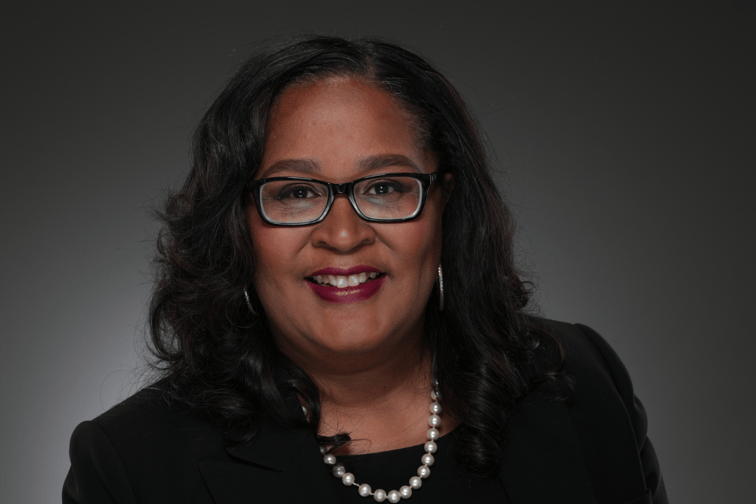

The daughter of a pastor and a nurse, Rebekah Ratliff (pictured), mediator and arbitrator at JAMS, knows what it means to build and live a service-orientated life. Speaking with Insurance Business ahead of a JAMS-sponsored event unpicking ‘The Impact of ADR on the Evolving Next Normal’, she highlighted how her lived experiences motivate and inspire her to be a catalyst for change.
Ahead of the event, Ratliff shared her insights into how conversations around ADR [Alternative Dispute Resolution] have evolved in the UK insurance marketplace. There has been some progress, she said, but change is slow in the “conservative insurance industry”. The reality remains that people, if not properly managed, are a business’s biggest risk.
“The insurance industry is the cornerstone of solutions,” she said. “Nothing happens personally or professionally that insurance doesn’t touch. Continuing to have conversations and using ADR professionals as intermediaries is vital for ensuring equitable outcomes in dispute resolution.”
Ratliff’s attestation that “insurance touches everything” will likely resonate with many professionals working on the frontlines of the sector and she said she’s looking forward to seeing the impact of the epiphanies the industry will have about ADR as a solution to the evolving risks facing the sector and its customers.
“It is imperative that professionals in the industry are representative of the communities we serve,” she said. “The magic of the insurance industry is its people. Industry professionals and adjacent industries have interdependent roles in ensuring that, globally, customers and clients are safe and supported when risks and conflicts arise.
“Insurance is the global recession-proof staple that supports everything that moves. Exploring, assessing, discussing and implementing solutions for the issues that concern the global community is what we do in our various roles.”
Dispute resolution professionals are becoming more acknowledged as the shepherds of global peacemaking, she said. Alternative dispute resolution professionals bring important facilitative guidance in conflicts that arise, which is especially critical as these conflicts are multi-dimensional. With the changing needs for access to justice, Ratliff believes there will be an increase in opportunities for ADR professionals from diverse backgrounds to become more visible in the resolution process.
Ratliff noted the critical role ADR has to play in making Access to Justice more accessible. ADR, equipped with diverse professionals as “shepherds of the process”, levels the playing field, she said. As it stands there are so many ADR professionals that are not getting the opportunity to assist in the resolution process due to a variety of factors including legacy relationships and historical structural barriers.
It is the lived experience of her own background that Ratliff believes has enabled her to bring her perspective and knowledge to bear in her role. The ability to select a diverse neutral with cultural awareness and keen insights from their backgrounds, experiences and skillsets is what will enable conversations, she said, and, in doing so, create options for resolving matters more equitably.
“The collaborative nature of ADR, especially mediation, and conciliation-based platforms makes these less formal ways of resolving disputes attractive to the parties,” she said. “You spend less time, there’s less stress and there’s less expense. Since COVID entered our lives, courts have been using ADR options more to reduce the backup that happens on trial dockets. The parties who care the most about a case can work with an intermediary to resolve and avoid the contentious and expensive processes of trial.”
The upcoming event will look to provide a soundstage for those ADR epiphanies – with the focus of the program on the ‘history, present and future’ of insurance as an industry and of ADR as a solution to the disputes that arise surrounding the activities and risks from the insurance, risk management and financial services space. Several high-profile names will be lending their expertise to the upcoming event, she said, which will be moderated by the “incomparable” Tangy Morgan (advisor, Bank of England) - the first African-American ever to work at Lloyd’s.
Ratliff paid tribute to the event’s partners, which include EQUITYCity, the Insurance Supper Club, and the National African American Insurance Association (NAAIA). The panel consists of industry influencers who will bring global perspectives on the current state and future of the industry, she said, among them Carey Bond (head of claims Americas at Lloyd’s), Godwin Sosi (co-founder of EQUITYCity - formerly ACIN) and Bernadette Pinto (senior legal counsel at RSA Insurance).
Looking ahead to the event, she said people can get involved by registering their attendance for the hybrid event which is taking place on October 18 – and she welcomed anyone interested in learning more about ADR to do so. Ratliff is confident that ADR can evolve to become the “next normal” for resolving insurance-related disputes.
“I believe that ADR will be at the centre of the various insurance-related - and beyond - solutions for the next normal,” she said. “Dispute resolution applies everywhere. From cradle to corporation, conflicts addressed in dispute resolution forums will be the path forward to a more cohesive, collaborative and peaceful society.”
What are your thoughts on this story? Feel free to share them in the comment box below.
